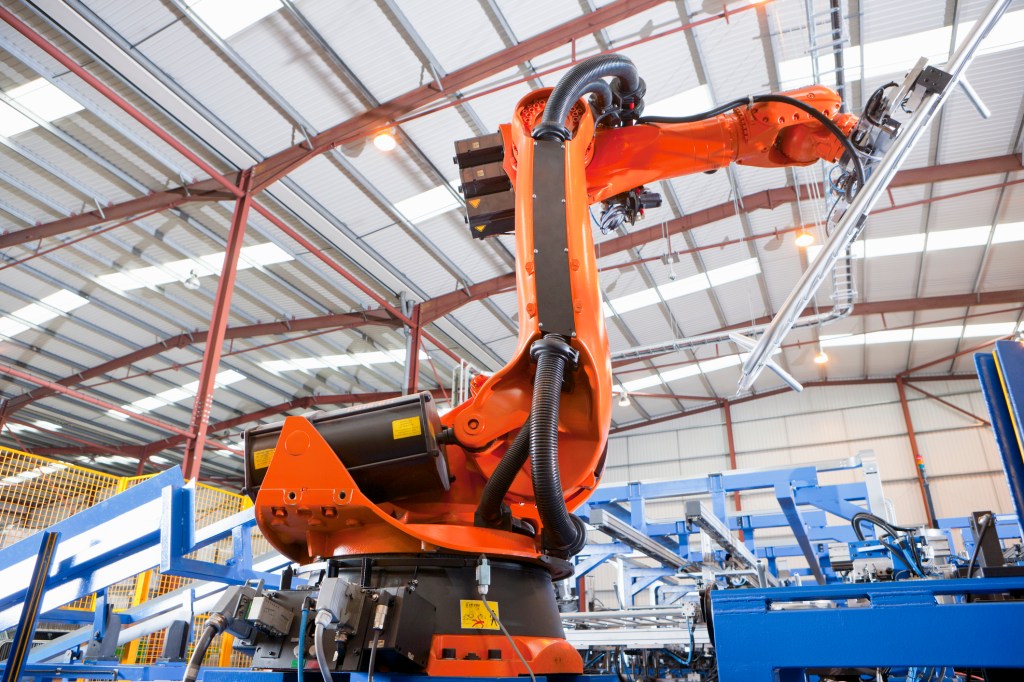Matthew Rendall
If you listen to the wrong people, the North American manufacturing industry is doomed.
There is no denying that the U.S. and Canada have been losing jobs to offshore competition for almost half a century. From 2000 to 2010 alone, 5.6 million jobs disappeared.
Interestingly, though, only 13 percent of those jobs were lost due to international trade. The vast remainder, 85 percent of job losses, stemmed from “productivity growth” — another way of saying machines replacing human workers.
For many, this scenario is even worse. China and Mexico may be “taking our jobs,” but at least they’re going to other humans. Robots, on the other hand, allegedly threaten to wipe entire sectors, like manufacturing, right off the map. The level of fear-mongering here is high: “How to Keep Your Job When Robots Take Over.” “Is a robot about to take your job?” “What Governments Can Do When Robots Take Our Jobs.” It’s enough to make anyone a little nervous.
The facts, however, tell a different story. Over the last 20 years, inflation-adjusted U.S. manufacturing output has increased by almost 40 percent, and annual value added by U.S. factories has reached a record $2.4 trillion. While there are fewer jobs, more is getting done. Manufacturing employees are better educated, better paid and producing more valuable products — including the technology that enables them to be so much more productive.
In fact, there are currently two million jobs going unfulfilled in the manufacturing sector, largely due to an aging workforce — the average age of a manufacturing worker is almost 45, two and a half years above the national non-farm median — and negligible interest in those jobs from younger generations.
These numbers lead to a different conclusion: Robots aren’t stealing our jobs — they’re improving them.
Robots are safer. They are more reliable. They are more ethical than using exploited labor overseas. Plus, they’re incredibly cost-effective, often delivering return on investment (ROI) in 12 months or less. That is a game-changer in an industry relentlessly driven by cost reduction and plagued by slow-drip evolution.
The subsequent cost savings produce a ripple effect. More jobs that are more desirable can remain in North America. Manufacturers can focus on and invest in innovation. As a result, new jobs are created that require and build a better educated, highly skilled workforce. There will be short-term job displacements, but long-term benefits to workers and society as a whole.
This isn’t just some unproven utopian vision. Periods of technological displacement show a consistent pattern in history. In the last century, we moved from people manually building cars to robots assembling cars. As a result, manufacturers both produce more cars and employ more people per car than before. Instead of performing dangerous tasks, those workers now program the robots to do the dirty work for them — and get paid more for doing so. As long as we’ve had technology, we’ve had Luddites who sometimes literally destroy technological advancements — and yet, here we are, more productive, with a higher quality of living than ever.
Economics prove this out, as well. Periods of heavy investment in automation, like the industrial revolution, are strongly correlated with improvement in a nation’s GDP, which itself is strongly correlated with improvement in quality of life. This includes everything from safer workplaces with fewer injuries to greater personal satisfaction from performing more skilled work, creating a positive cycle. More skilled work means higher pay, which allows people to afford higher education, which leads to an even more skilled workforce that has the time and disposable income to further boost the economy.
A recent Washington Post article explained this well: “[This] is the natural dynamic by which market economies become richer as productivity improves. Improvements in agriculture productivity led to a wave of migration of farm workers to cities, where they provided the manpower for an industrial economy that eventually became so productive that we could afford to buy more health care, education, and yes, government.” We’re in the midst of the same cycle right now.
Which brings us back to the state of manufacturing in North America. In spite of the fear-mongering and media hype, legitimate individual concerns and hollow political rants, robots are revolutionizing the industry for the better. They are simply the latest form of technology criticized for taking jobs that no one should have to do.
In reality, they will enable us to keep more (and better) jobs at home, to grow local industry, to improve our lives at the micro and macro levels. With greater automation, efficiency, safety and productivity, the North American manufacturing sector will not only survive, it will showcase the power of our innovation and ingenuity.
So, will a robot take your job? Maybe. But in return, you — and your children and grandchildren — will likely find more meaningful work, for better pay. Sounds like a good trade-off to me.































Comment